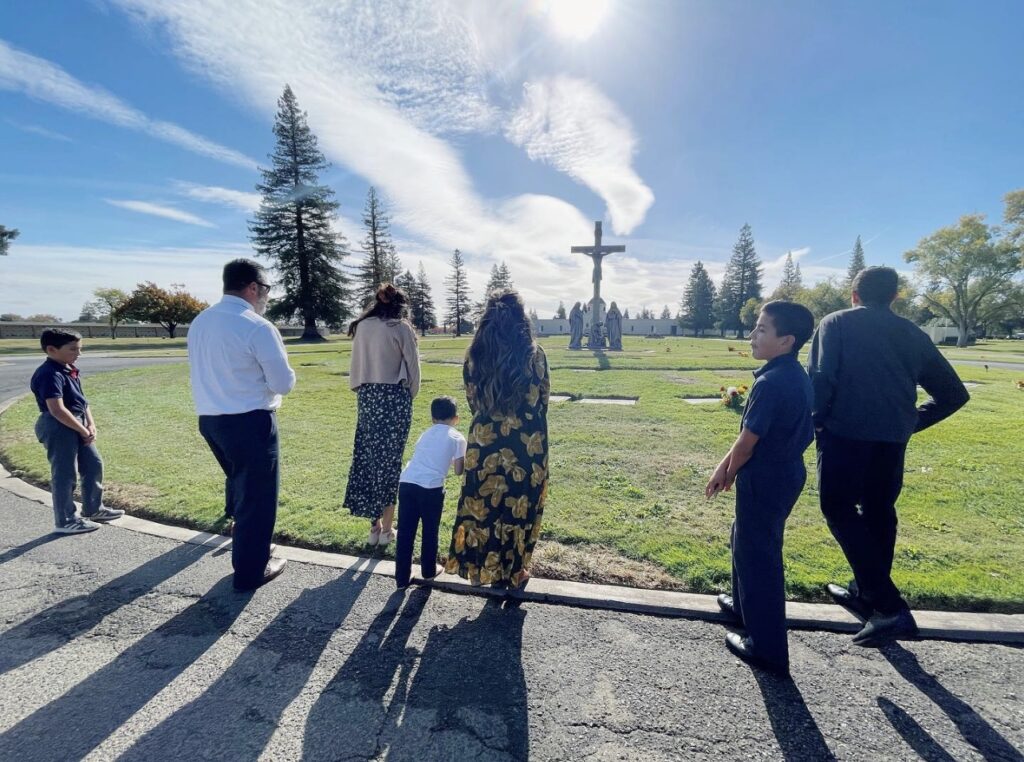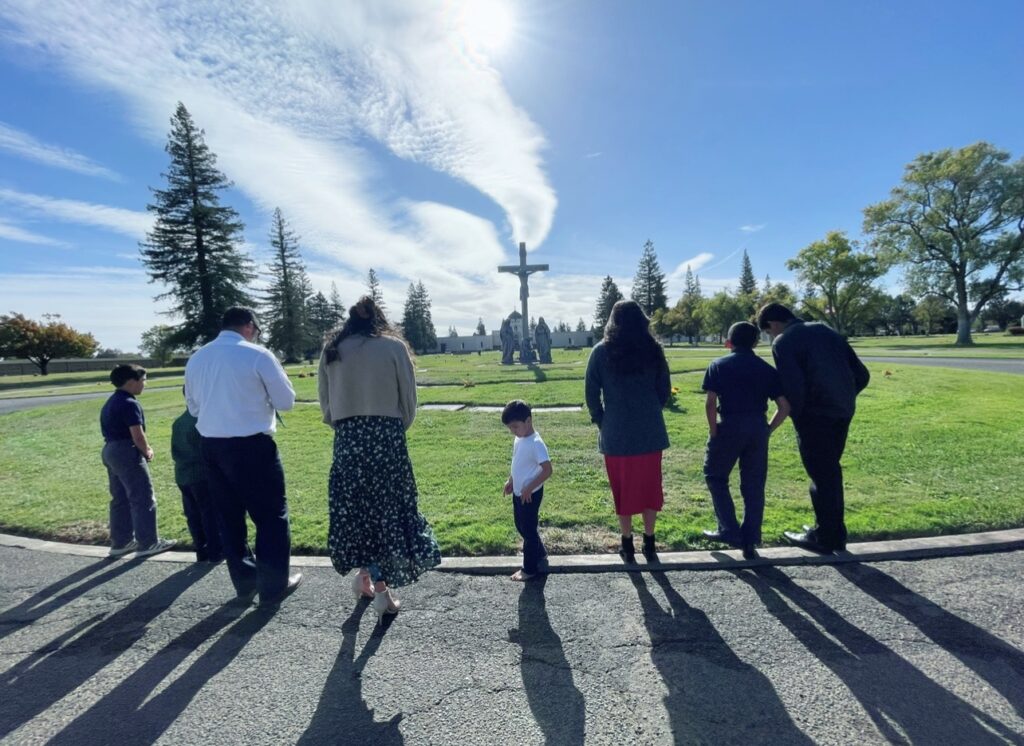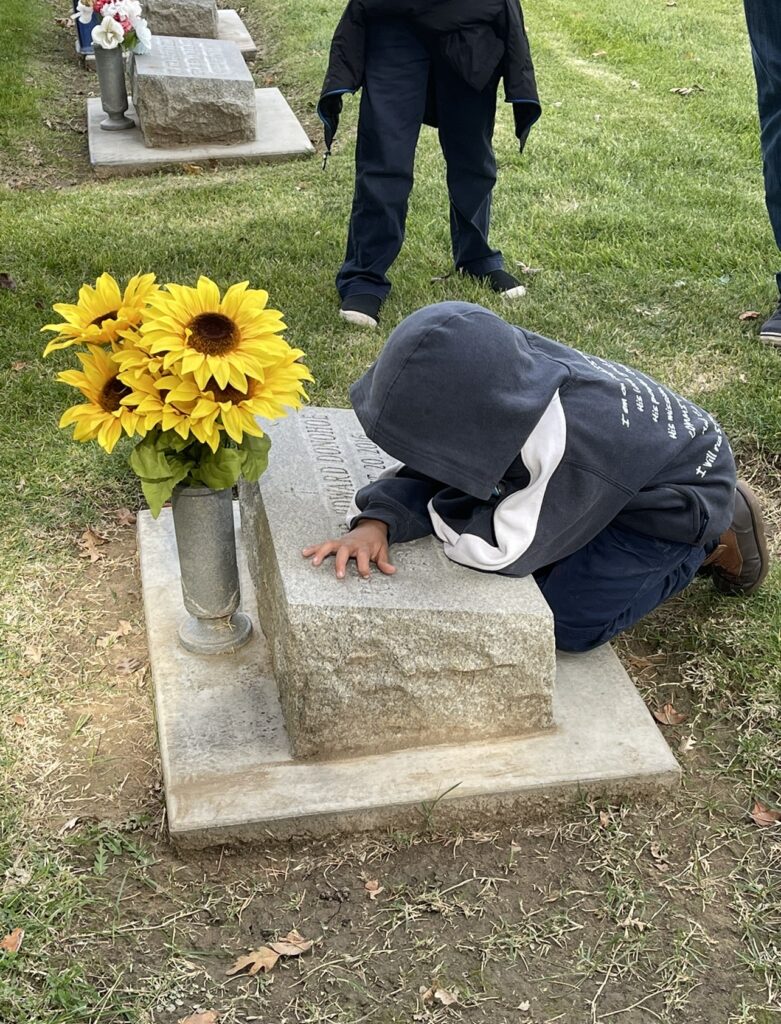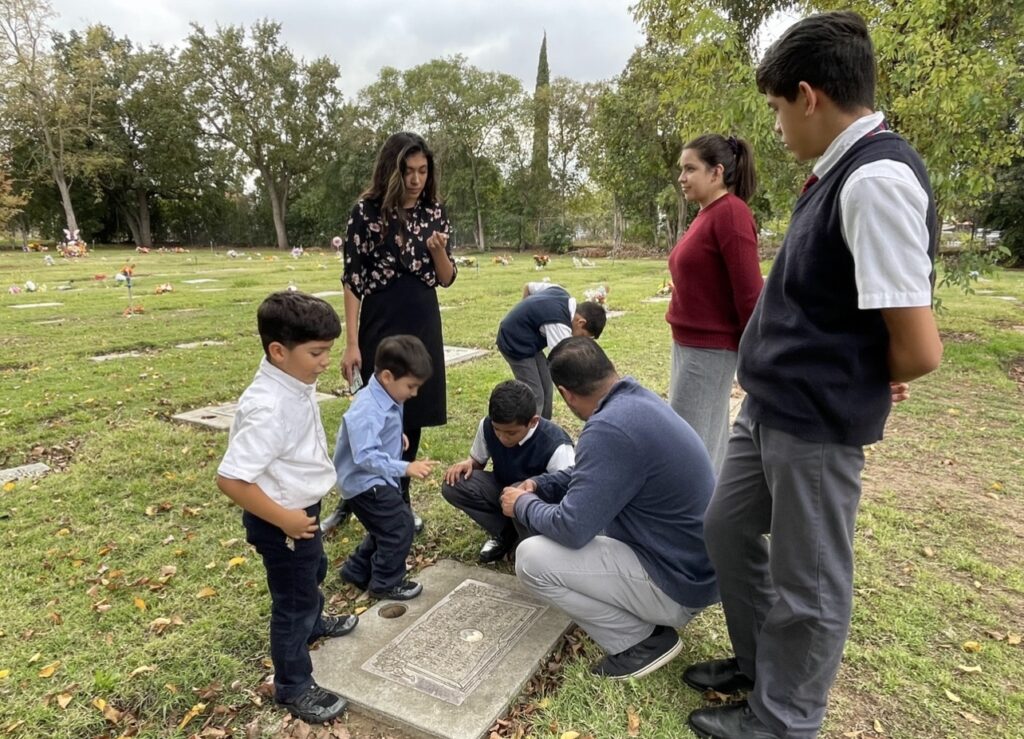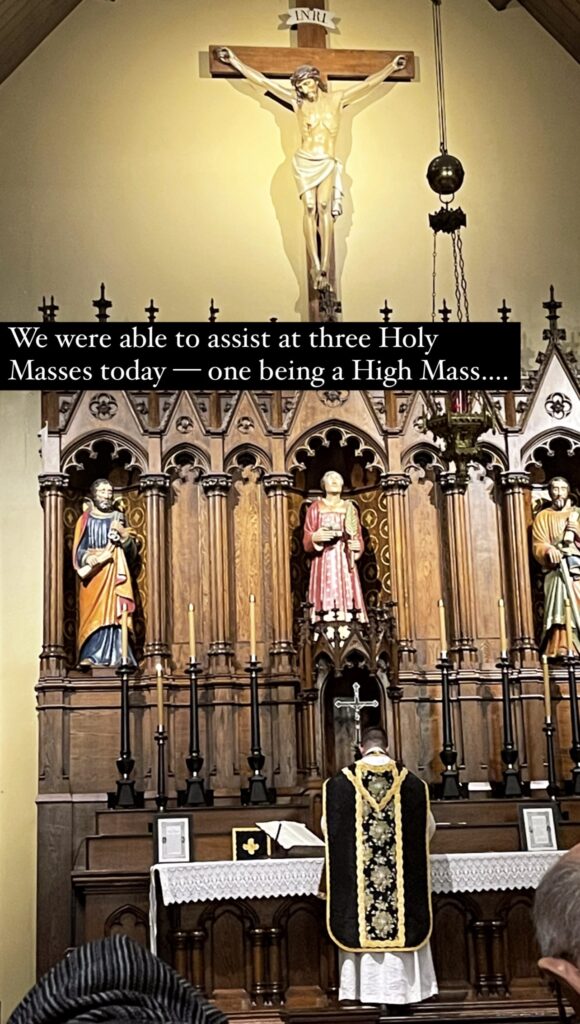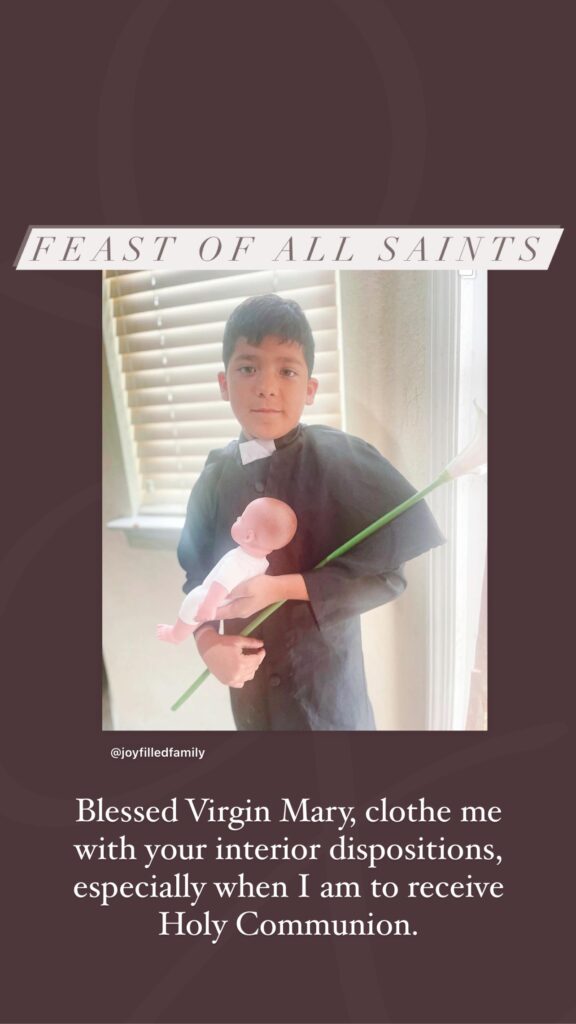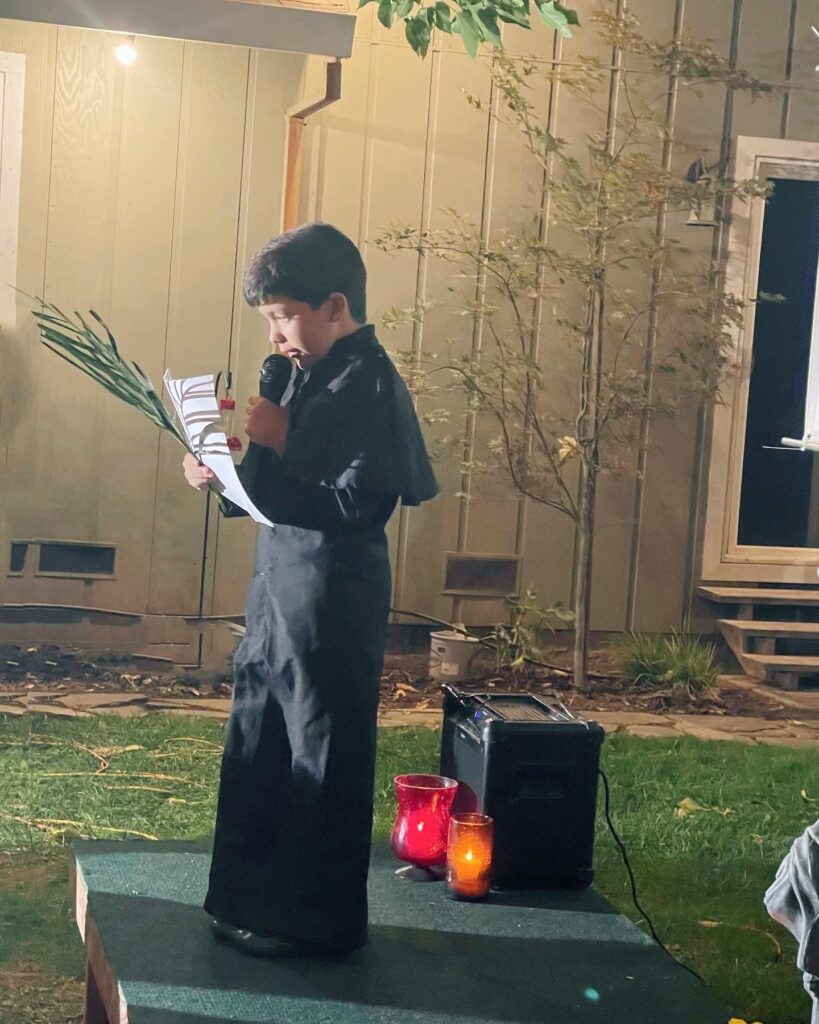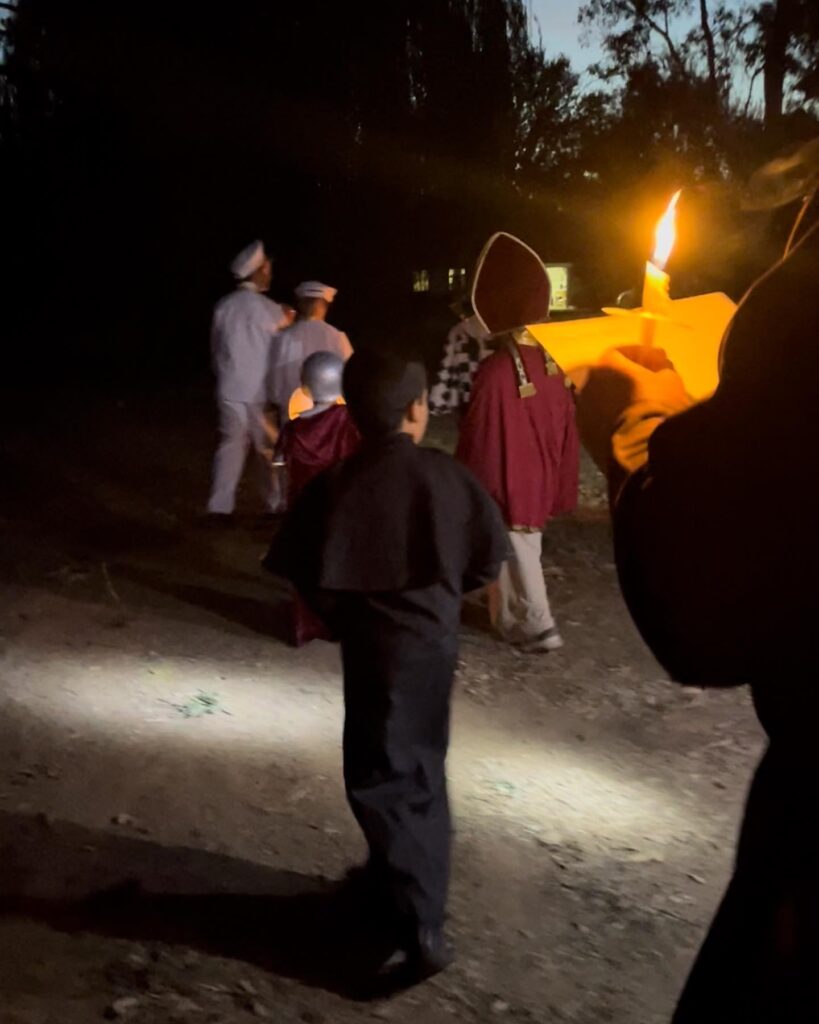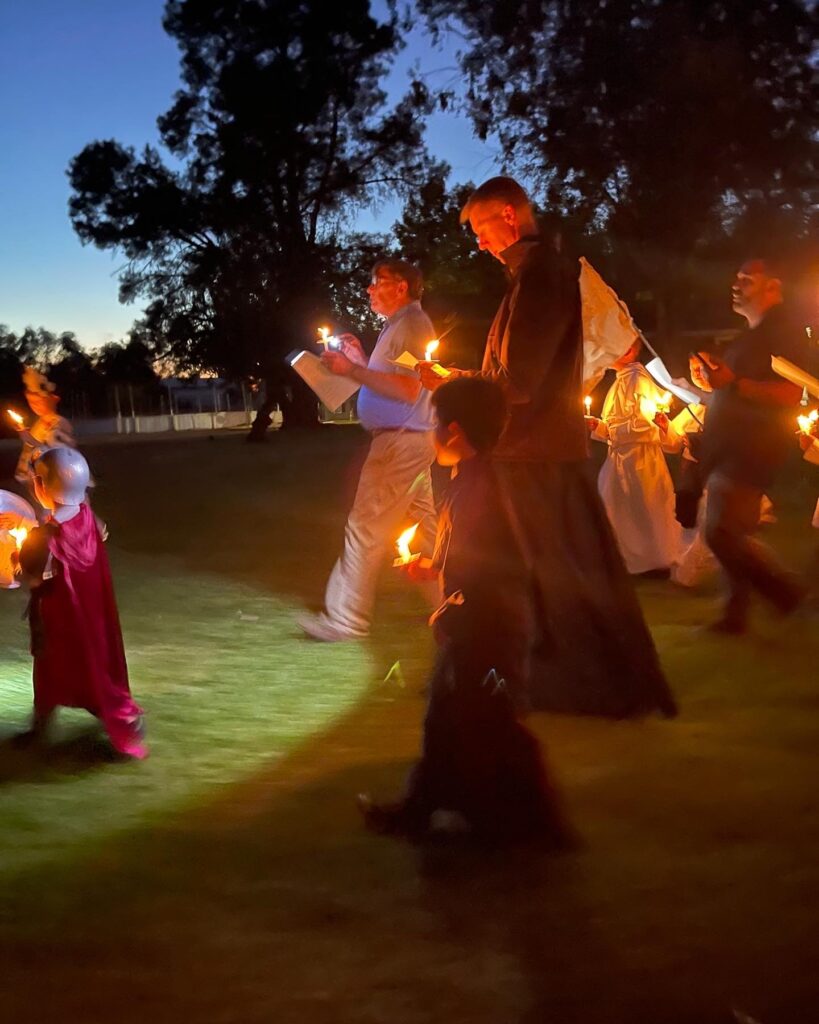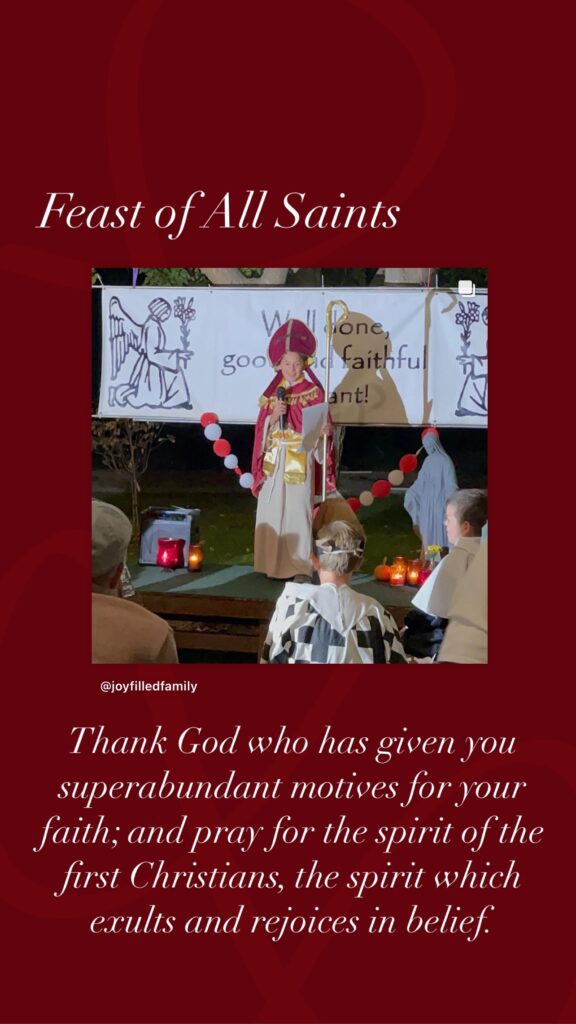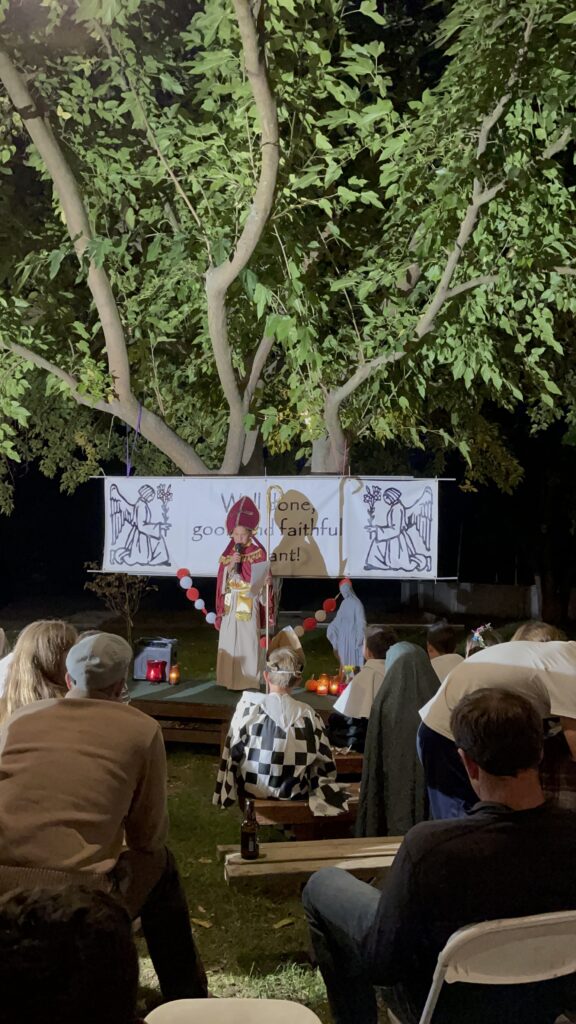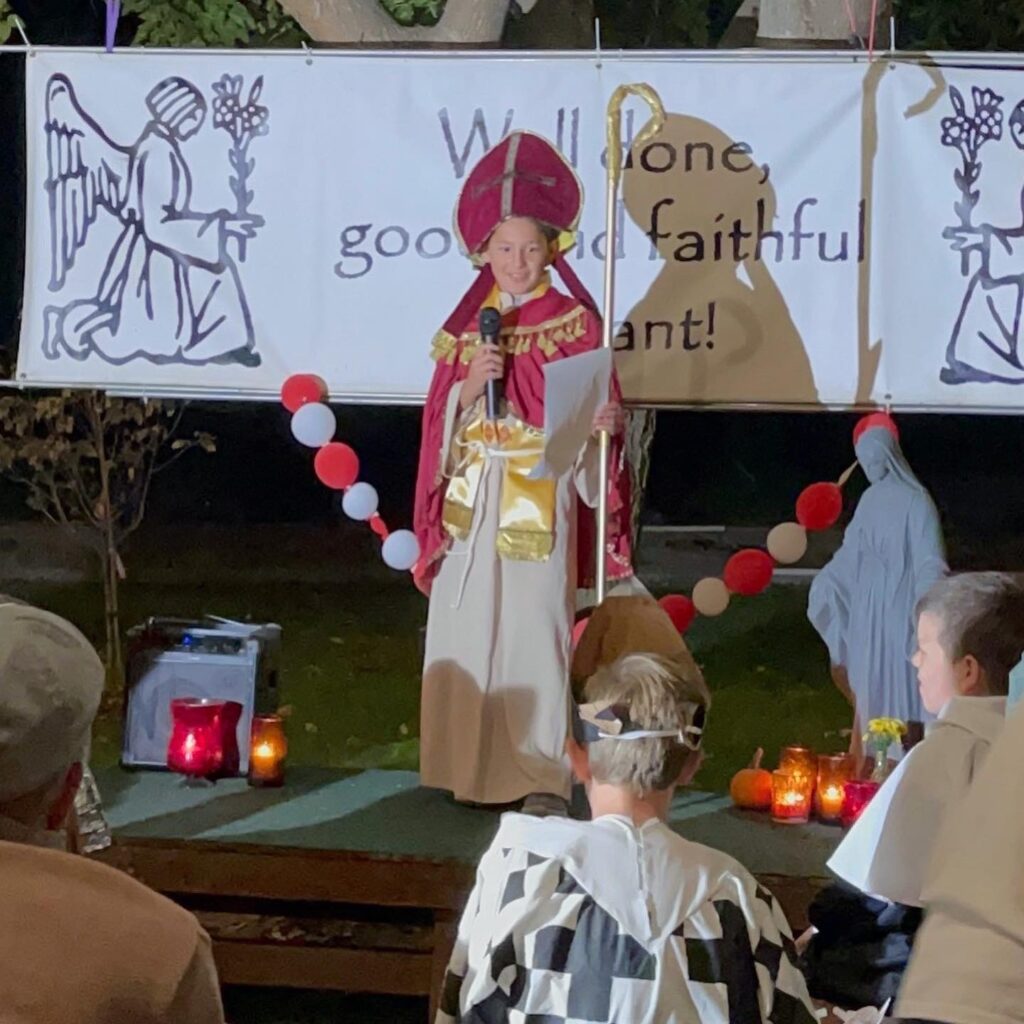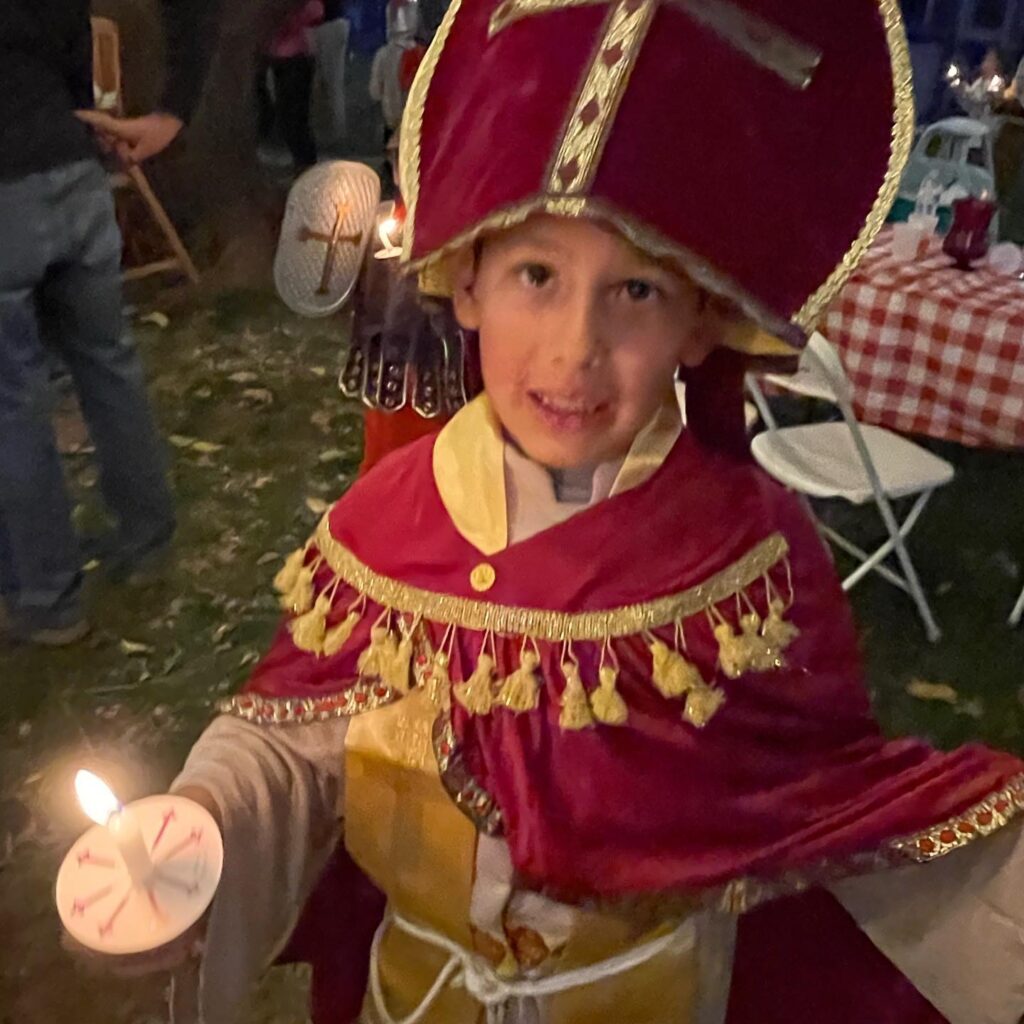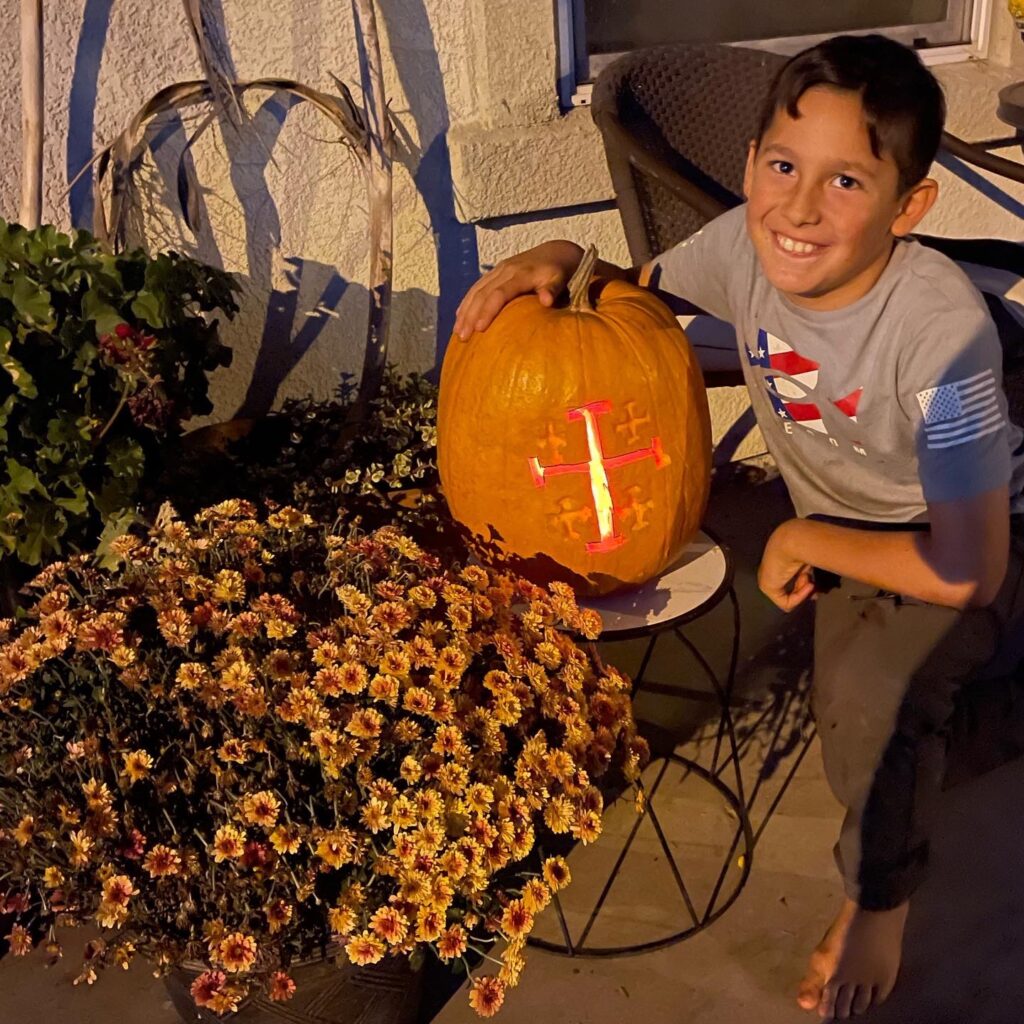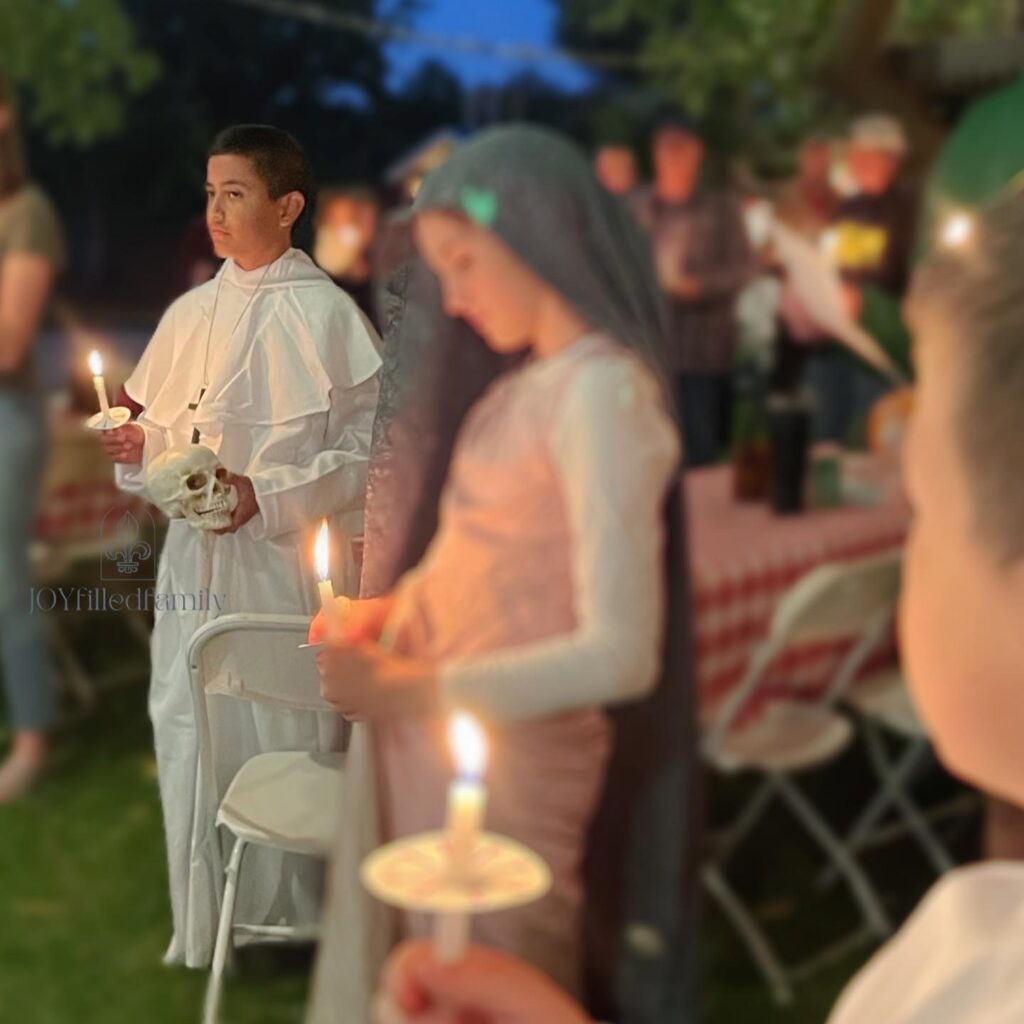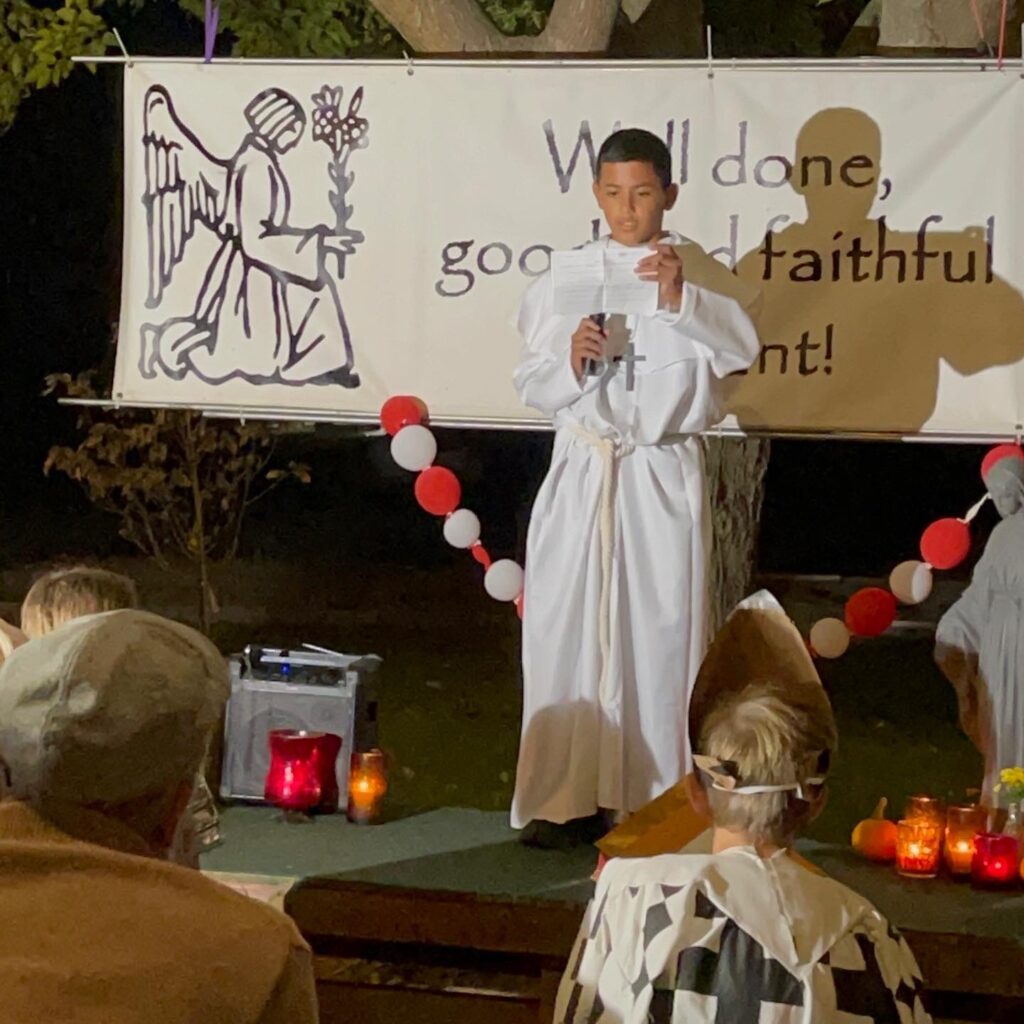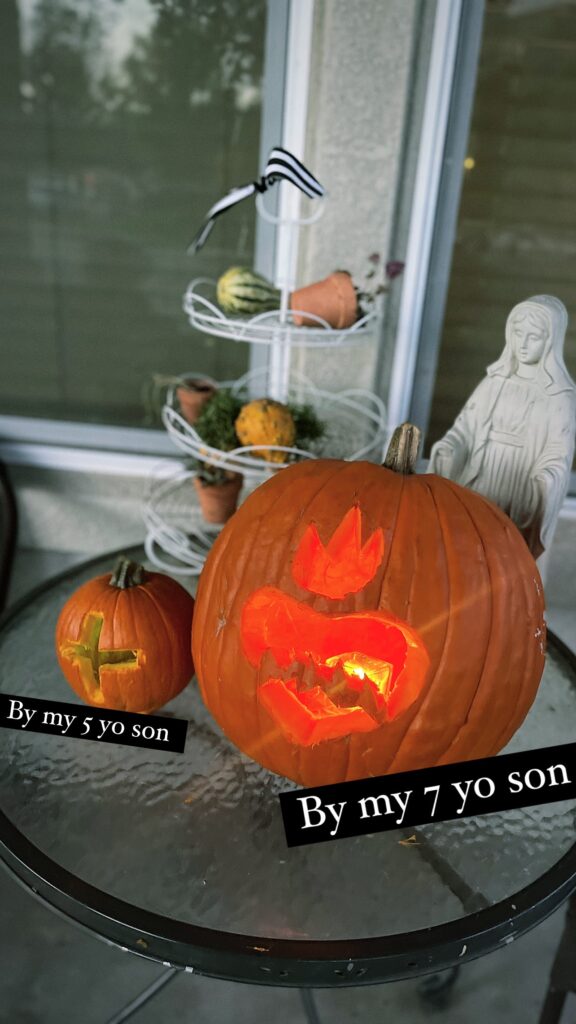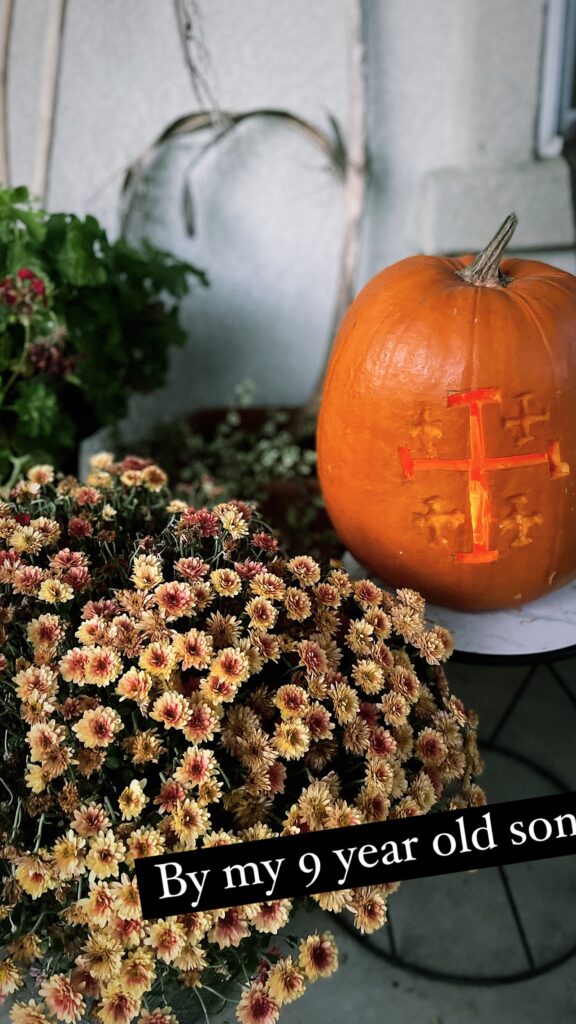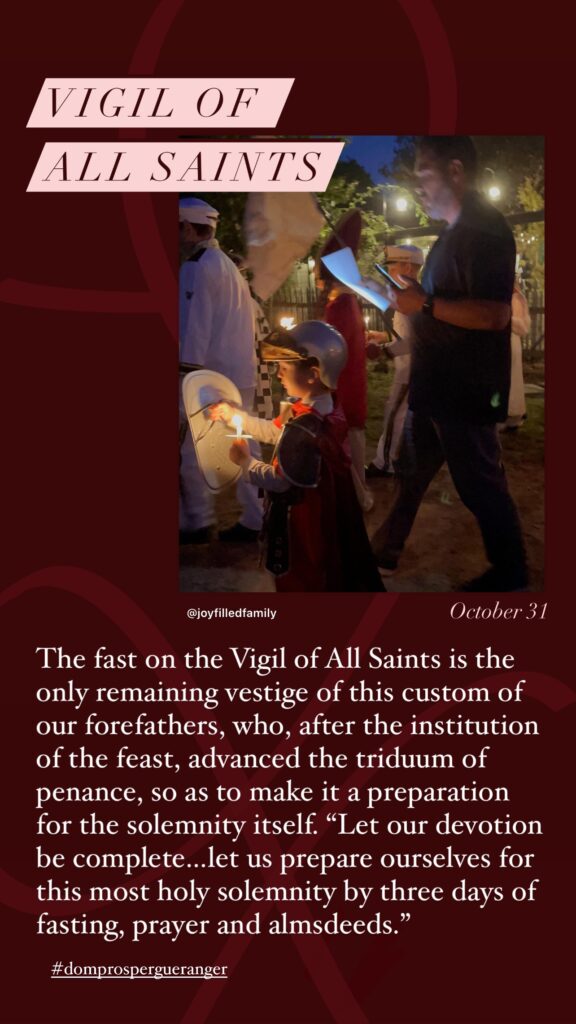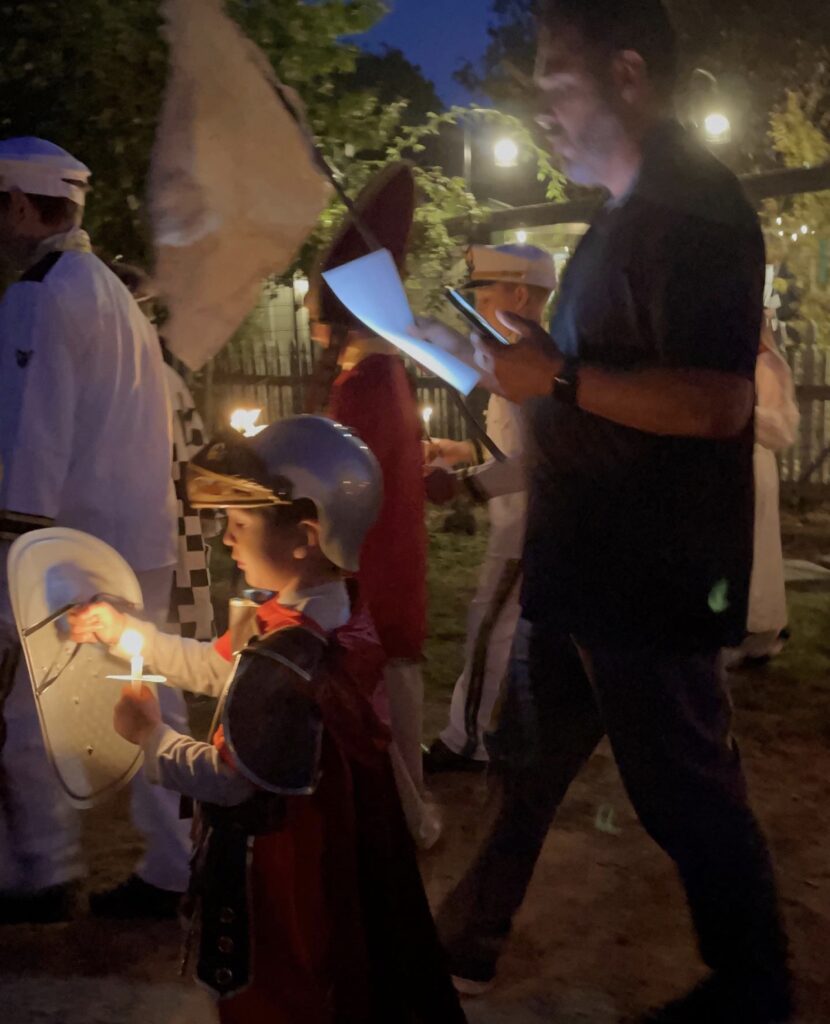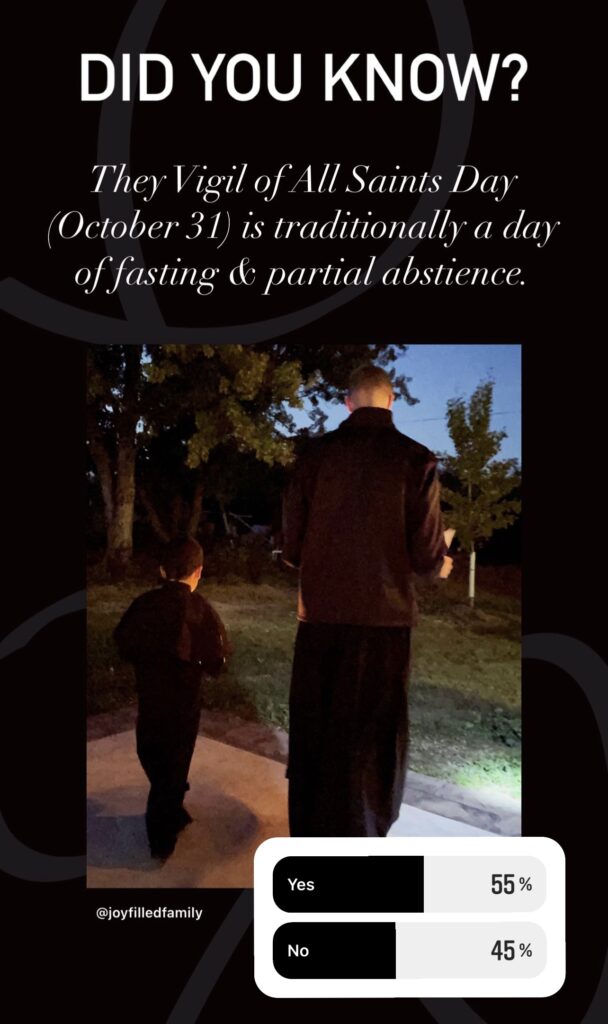*posted 2023, only a few years behind
This is one of the feastdays that we fully live out and spend a good amount of time preparing for — Hallowtide brings the way for two major feastdays.
We typically celebrate All Saints Day with festivities among family & friends on All Hallow’s Eve and assist at Holy Mass on the actual feast which is a Holy Day of Obligation. We try to start the Octave of All Souls with a visit to the cemetery for prayers of the deceased on Nov. 2.
One of the highlights is the Who Am I? presentations. The children present a bio of their saint. Many spend a great deal of time in researching the saints and getting to know their newfound patron.
We now have only 4 left to dress up. Below are the bios of our 2021 saint lineup. Orate pro nobis!

I was small and mighty. I beat the beast by slinging a stone at his head.
WHO AM I?
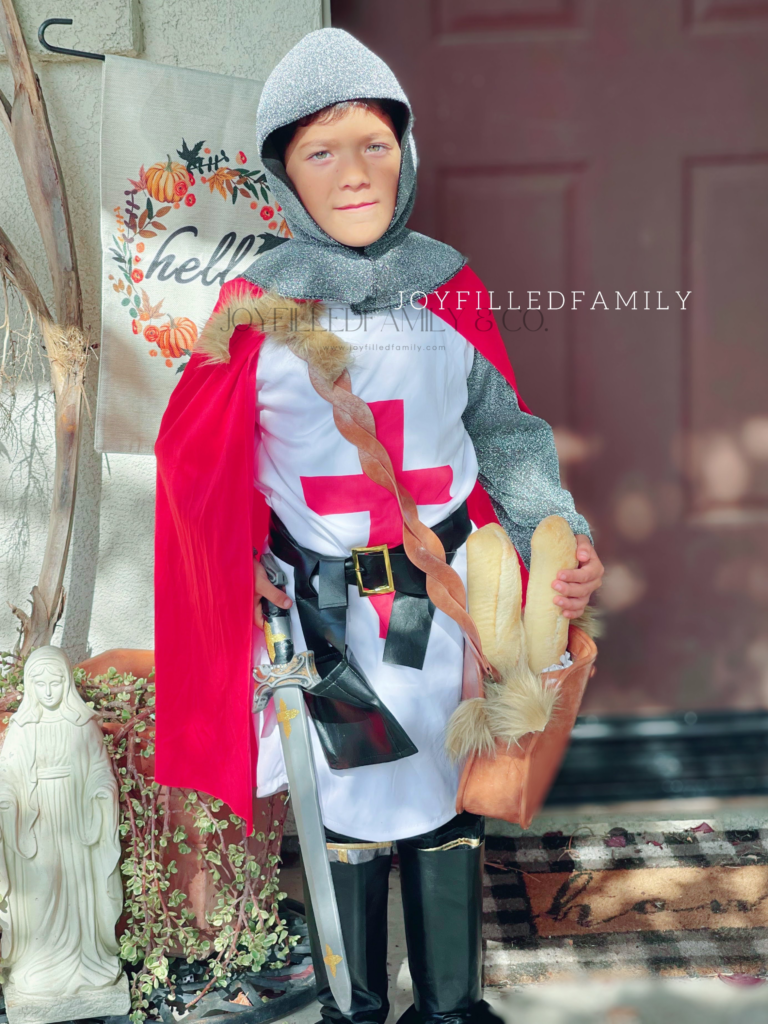
I was an Earl who became a knight in the Second Crusade to recover the Holy Land from the Moors. Upon my return, I received the County of Flanders
I had a great love for justice. I even forbade any of my subjects to blaspheme or take the name of God in vain. The punishment for blaspheming was to lose a hand or foot. My love for justice made me hated by many evildoers.
I declined to take over the throne because I wanted to focus on serving those in need. I gave all I could and would even sell the clothes off my back if needed. One day, I gave away 7,800 loaves.
I walked every morning barefoot to the church for my prayers and devotions. I was warned that some were plotting against me. I answered: “We are always surrounded by dangers, but we belong to God. If it be his will, can we die in a better cause…. than that of justice and truth?”
While I was reciting the penitential psalms before the altar, a mob rushed in and split open my head, in 1124.
WHO AM I?
I was beatified in 1884.
Patron of Crusaders
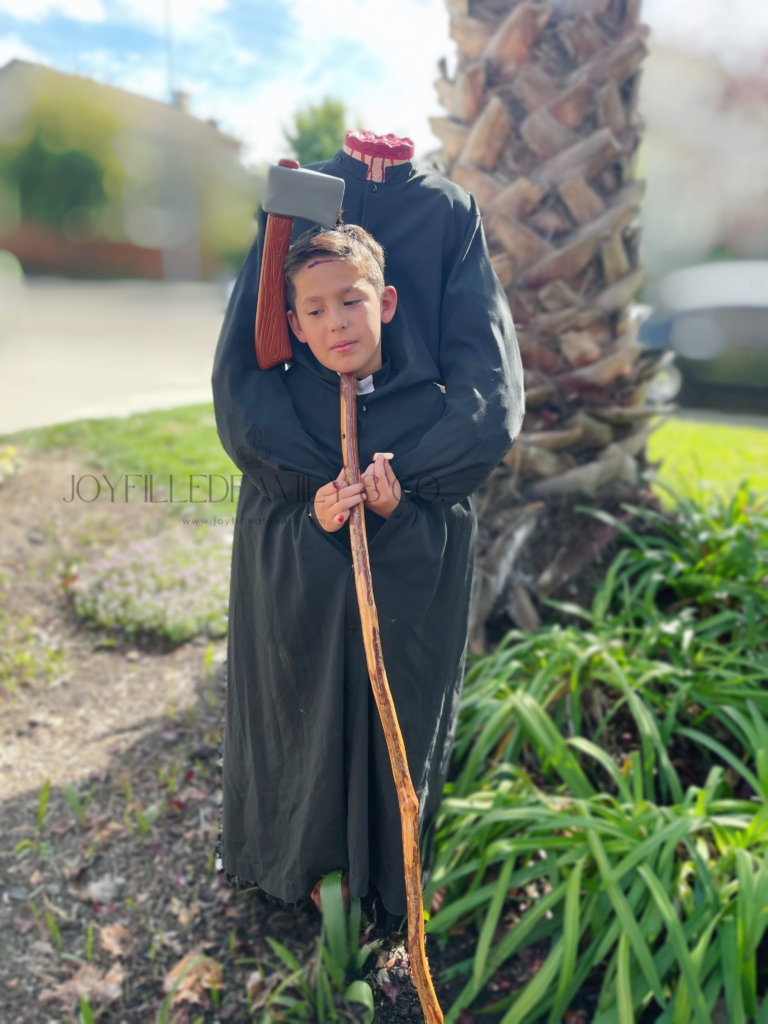
I became a priest in France in 1624. I went to the new lands to work and share the Faith.
I was kidnapped and held captive for over 1 year. The natives tortured me be by fire, removed fingernails, gnawed away my fingers, and much more. I even had to throw my finger in the woods so I wouldn’t be forced to eat it.
I was rescued from martyrdom a number of times. And eventually, I returned home. No one recognized me because my condition was so poor.
The Pope gave me special permission to offer Holy Mass since my critical fingers were missing.
I eagerly wanted to go back to the new lands in 1644. I told my friend, “I will go, but I will not return.”
Just two years later, on Oct. 18 1646, I was captured and tomahawked to death. My head was placed on a stake as a trophy of sorts and thrown into the river.
WHO AM I?
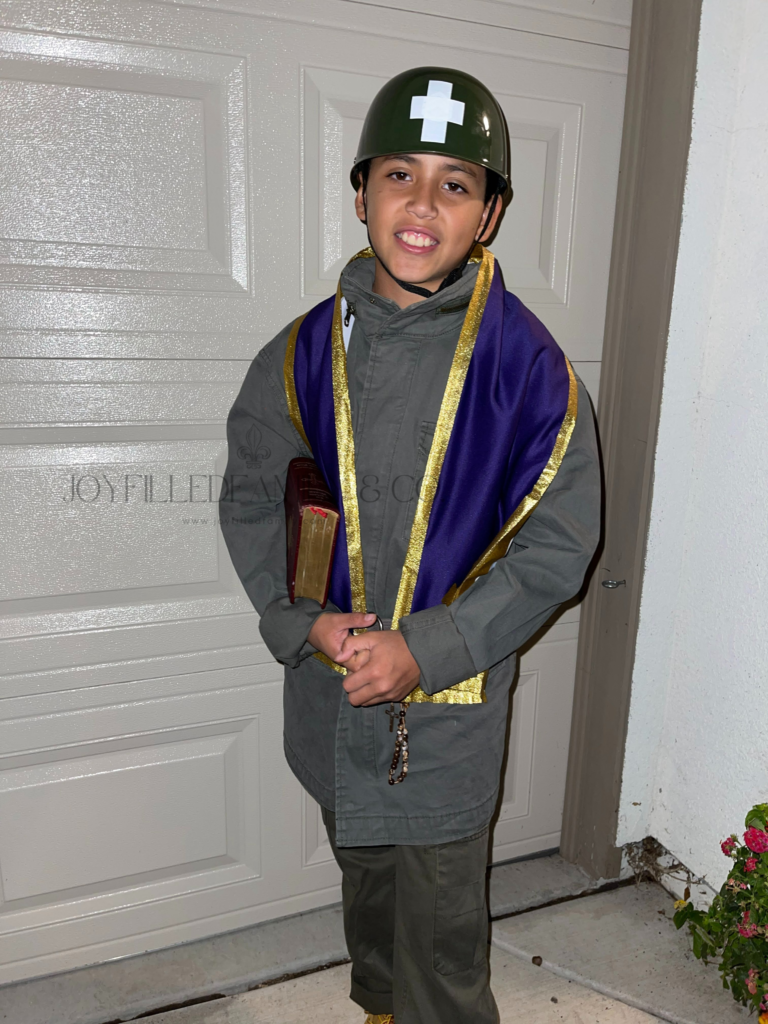
I was torn between the priestly duties at home and the need to serve the brave men in the military fighting in World War II. My bishop recommended me for the U.S Army Chaplain Corps (KORZ). I joined the post-world war peacekeeping force and experienced firsthand the horrors of the Korean War.
————————–
I was compelled to fight in the front lines with my troops. Due to the circumstances I offered Holy Mass on the hoods of our jeeps and prayed with my men in foxholes. I never carried a gun or fired a weapon. One day we were ambushed by the communists, rather than retreating with the others I and a doctor stood behind to care for the dying and wounded. We became Prisoners of War.
————————-
I risked my life every day by sneaking out to find food for the other prisoners. When the Chinese guards discovered that I had a blood clot in my leg, they moved me to the death house. There, I died, alone on May 23, 1951.
I forgave my captors and told the prisoners of the camp “Don’t worry about me, I am going to where I always wanted to go and I will pray for you!”WHO AM I?
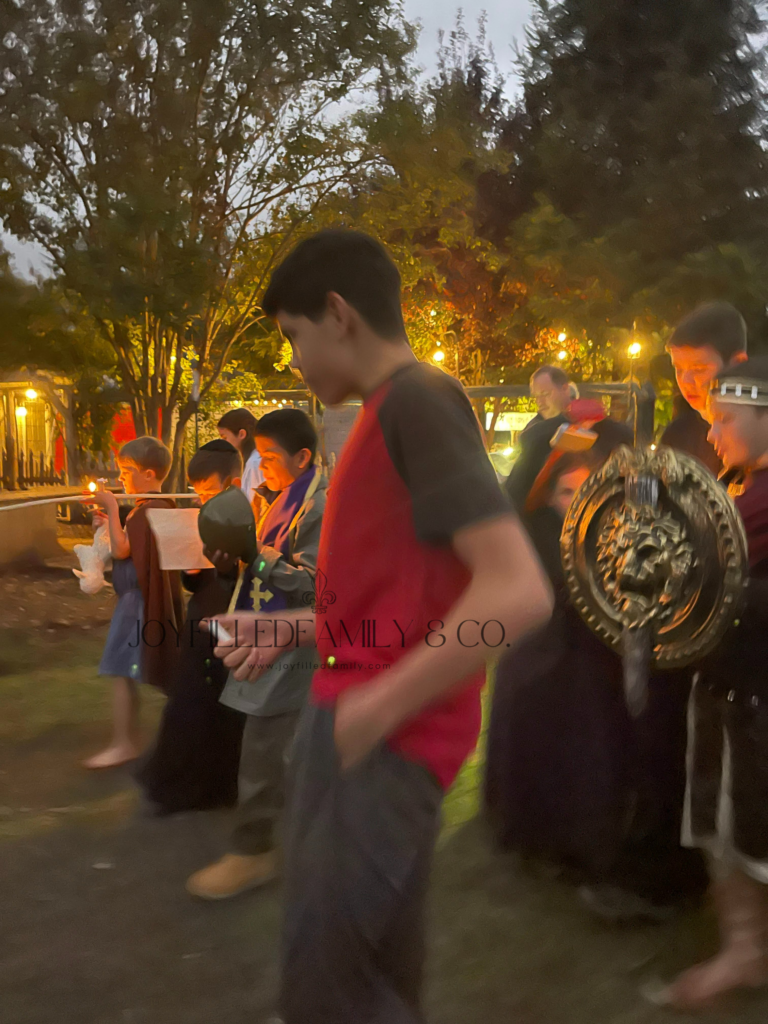
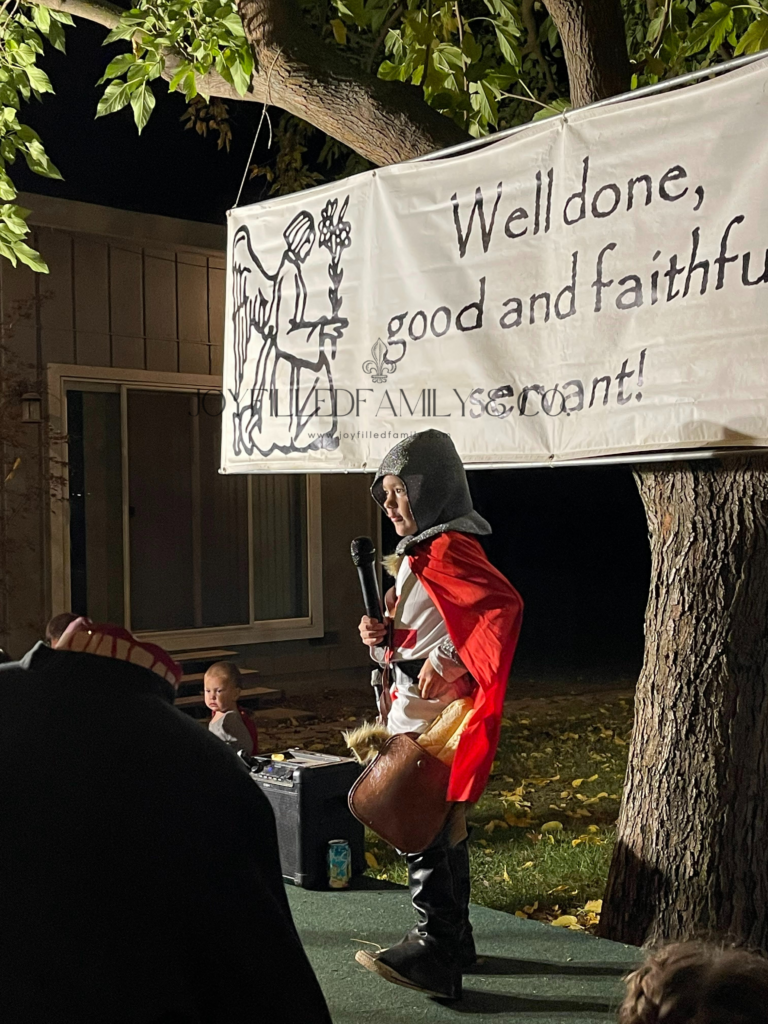
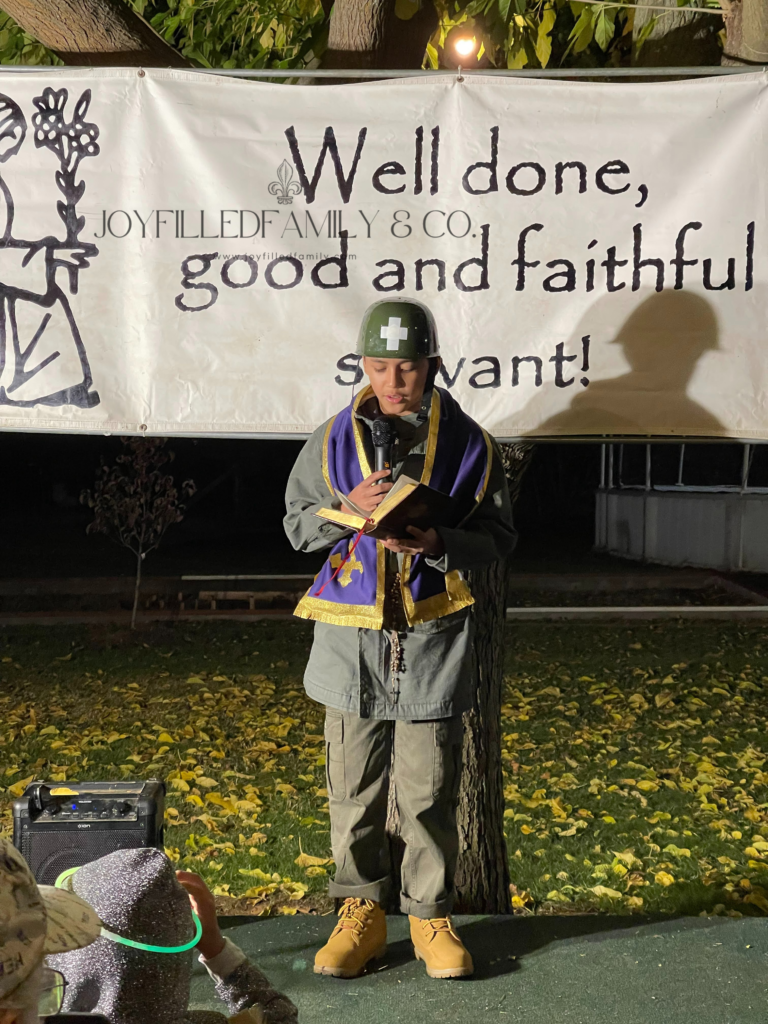
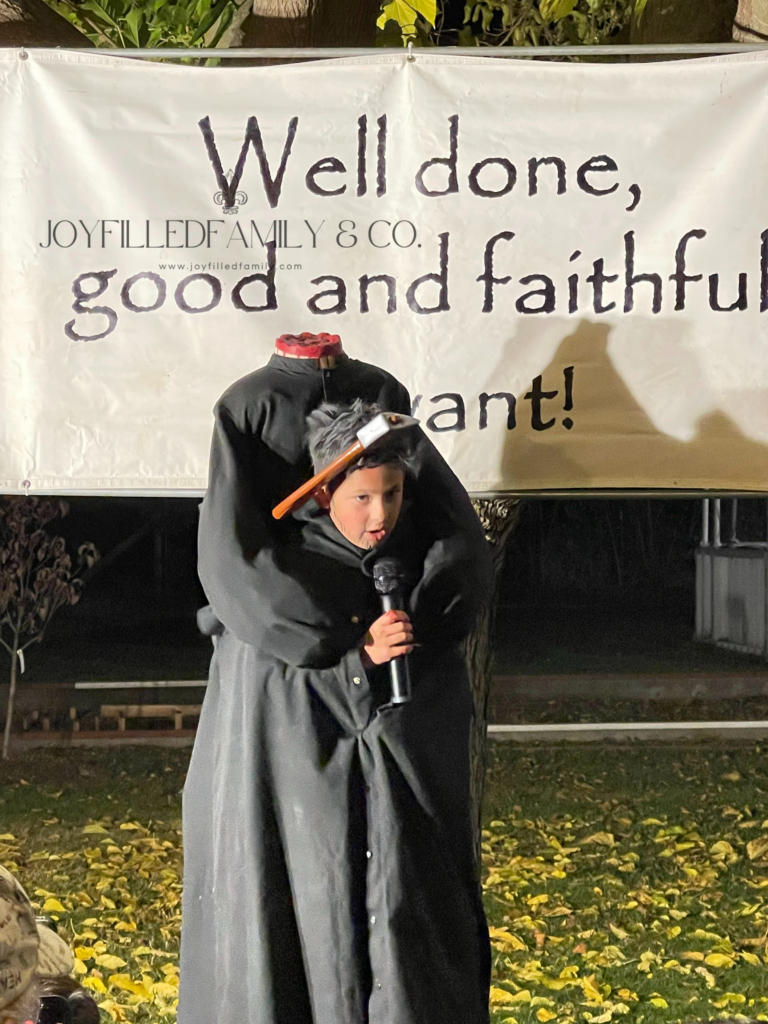
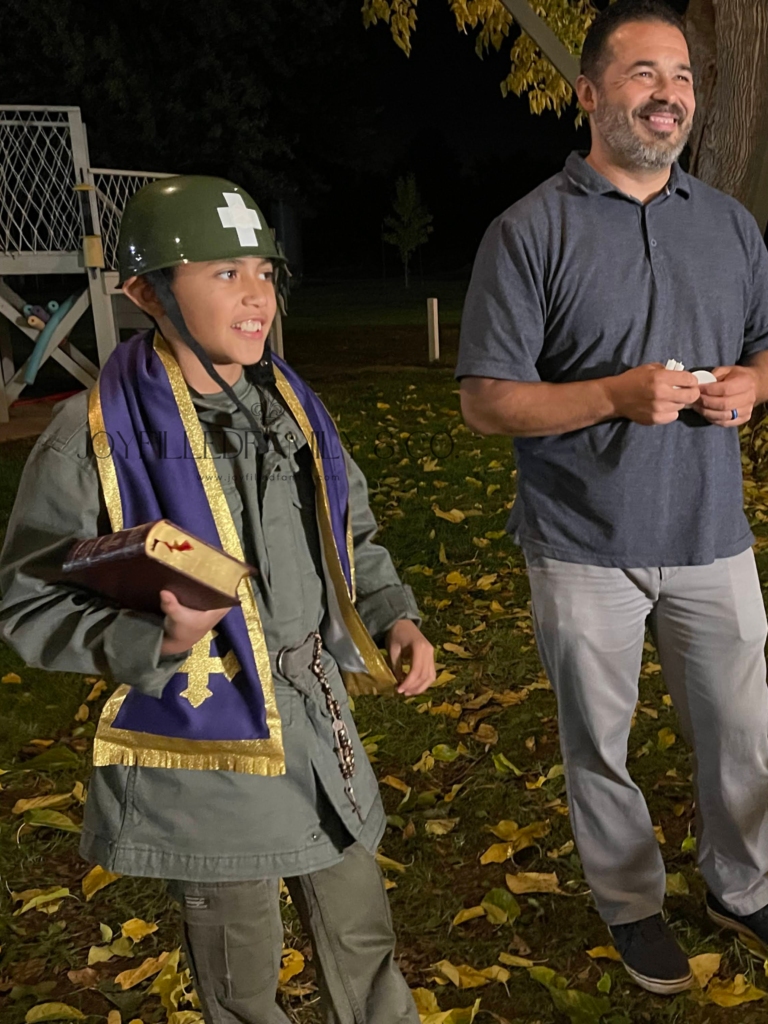
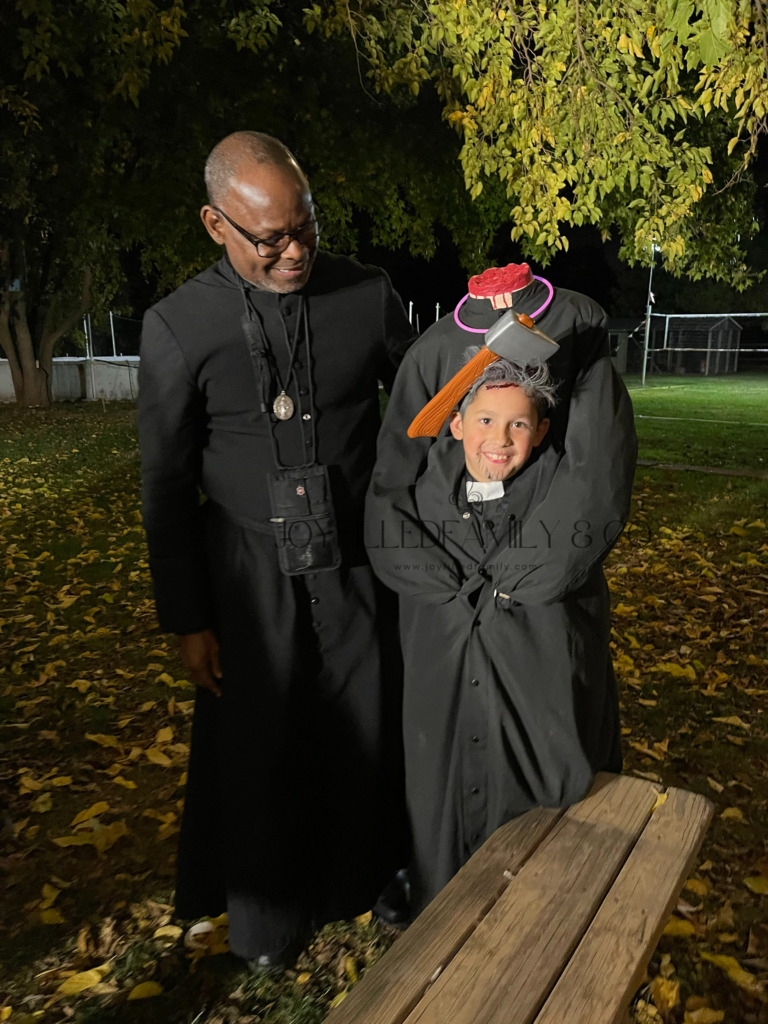

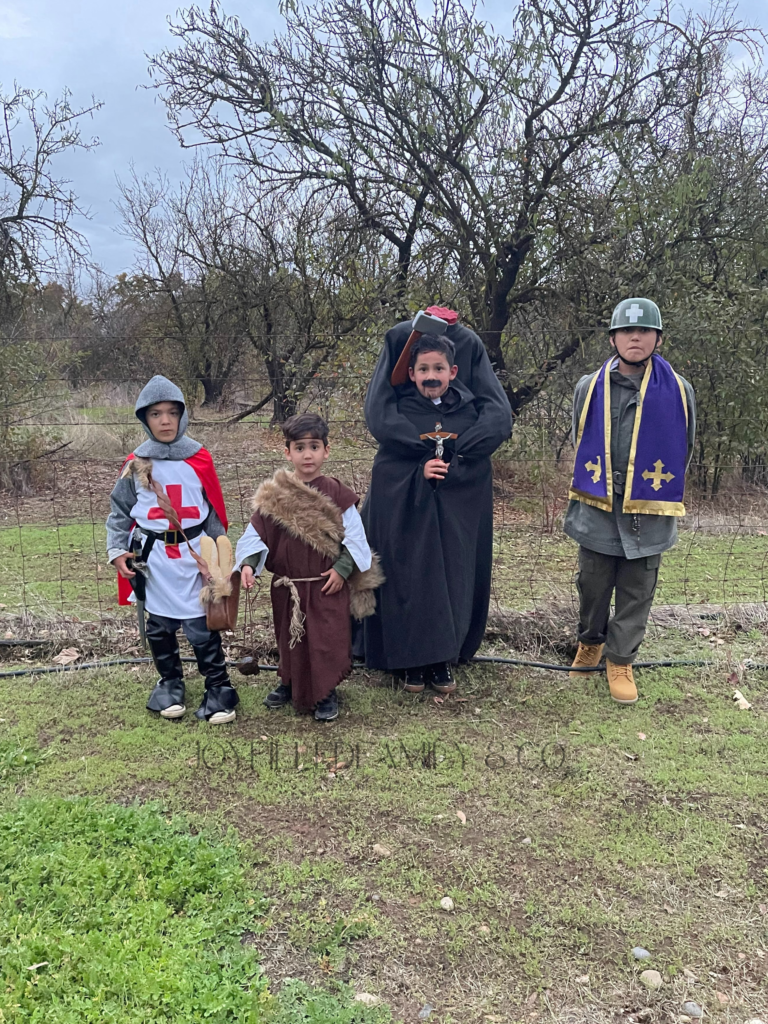
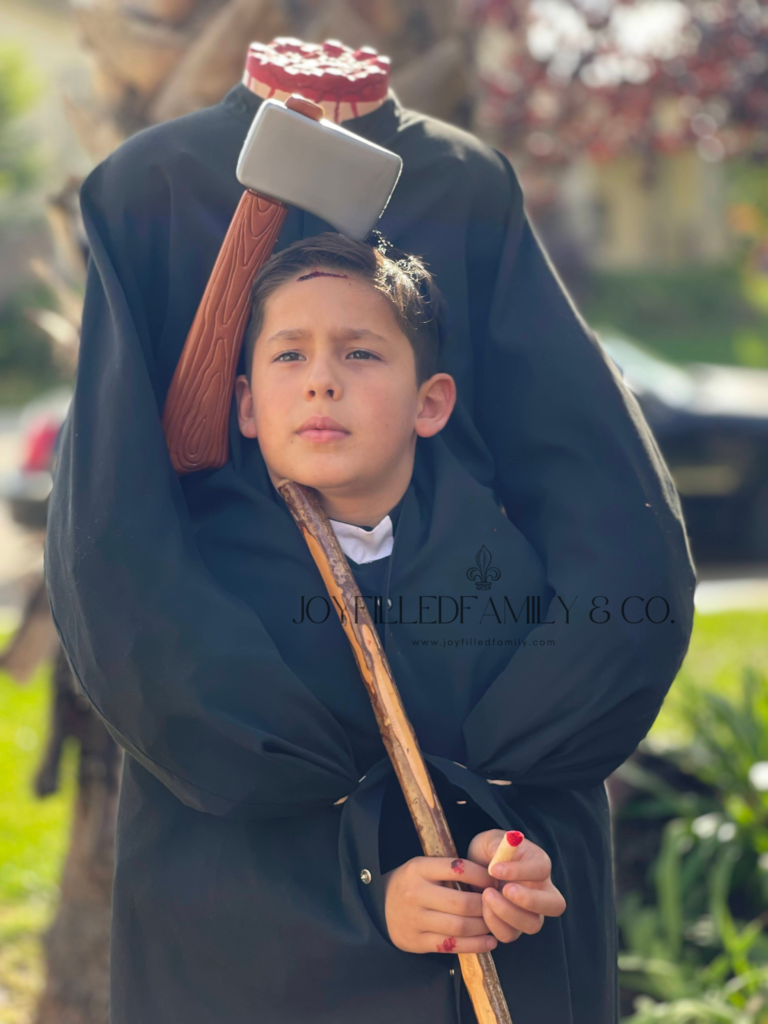
2021 Saint Line up in order: David (fought Goliath), Bl. Charles the Good, St. Issac Jogues, and Fr. Emil Kapaun




